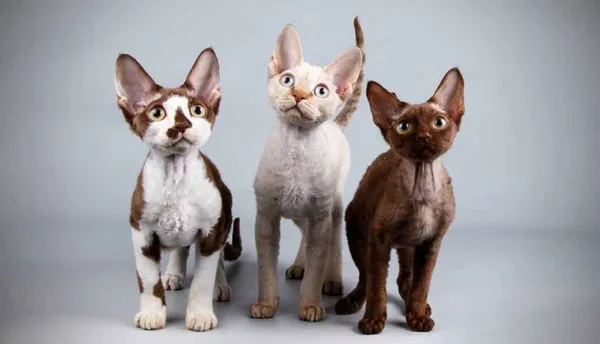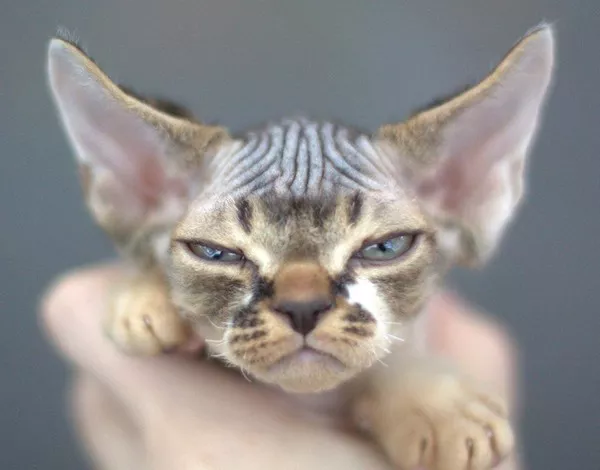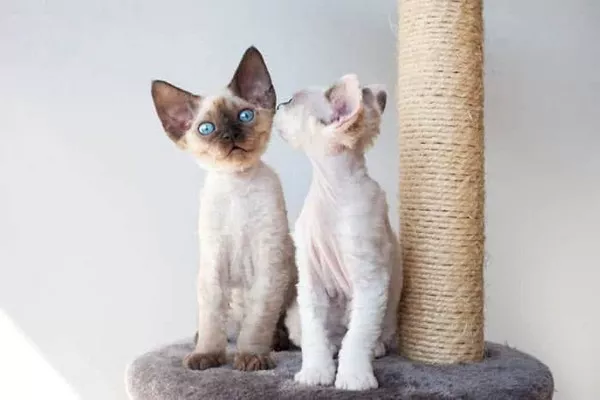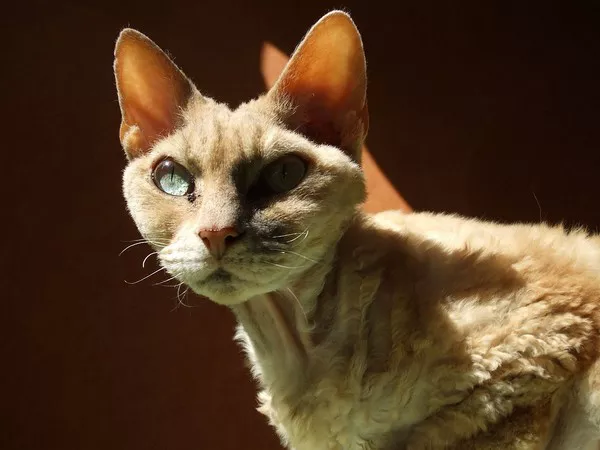In the enchanting world of feline companionship, certain breeds stand out for their exceptional sociability and affectionate nature. The Devon Rex cat, with its distinctive appearance and elfin charm, is celebrated for being notably friendly and engaging. This article delves into the captivating realm of the Devon Rex’s friendliness, exploring the factors that contribute to their warm and affectionate personalities. From genetic predispositions to environmental influences, the endearing nature of these feline companions invites us to unravel the secrets behind their friendly disposition.
The Origins of the Devon Rex Breed
To comprehend the friendliness of Devon Rex cats, it’s essential to explore the origins of this unique feline breed. The Devon Rex emerged in England during the 1960s, born from a spontaneous genetic mutation. The breed’s founder, a stray cat named Kirlee, possessed distinctive wavy fur, large ears, and an overall elfin appearance. Through selective breeding, these charming characteristics were passed down, solidifying the breed’s signature traits, including their amiable temperament.
Genetic Influences on Friendliness
The friendliness of Devon Rex cats is, in part, influenced by their genetic makeup. Selective breeding practices have favored individuals with sociable and affectionate traits, contributing to the breed’s overall temperament. The genes responsible for the Devon Rex’s charming demeanor likely play a role in their willingness to engage with humans and form strong bonds with their owners.
Personality Traits: The Social Butterflies of the Feline World
Devon Rex cats are often described as social butterflies within the feline world. Their outgoing and extroverted personalities set them apart, making them highly adaptable to various social environments. Unlike some more independent cat breeds, Devons thrive on human interaction and actively seek companionship. Their friendliness extends beyond the bounds of their immediate family, often making them amiable towards strangers and other pets.
Early Socialization: Shaping Friendliness from Kittenhood
The foundation for the friendliness of Devon Rex cats is laid during their early development stages. Kittens that receive ample socialization experiences with humans and other animals are more likely to grow into friendly and well-adjusted adults. Responsible breeders and owners play a crucial role in exposing Devon Rex kittens to positive interactions, ensuring they develop the social skills that define their friendly nature.
Playful Nature: Building Bonds Through Interaction
Devon Rex cats exhibit a playful and mischievous nature that contributes to their friendly demeanor. Engaging in interactive play with their human companions not only provides physical and mental stimulation but also strengthens the bond between the cat and its owner. The playful antics of Devon Rex cats create an environment of joy and companionship, fostering a sense of trust and affection.
Communication Skills: Vocalizing Affection
Devon Rex cats are known for their expressive vocalizations, using a wide range of chirps, trills, and meows to communicate with their owners. This vocal interaction serves as a means of expressing affection, seeking attention, or simply engaging in a conversation. The ability to effectively communicate enhances the bond between Devon Rex cats and their owners, creating a dynamic and mutually understanding relationship.
Emotional Intelligence: Reading Human Cues
One remarkable aspect of the friendliness exhibited by Devon Rex cats is their emotional intelligence. These feline companions display an uncanny ability to read human cues and respond to emotions. Whether providing comfort during times of distress or sensing the need for companionship, Devon Rex cats seem attuned to the emotional well-being of their owners, further solidifying the bond between human and feline.
Lap Cats: Seeking Proximity and Affection
Devon Rex cats are renowned for their love of physical closeness and warmth. Many Devons are avid lap cats, seeking out the comfort of their owner’s lap for naps, cuddles, and shared moments of relaxation. This preference for physical proximity enhances the sense of connection and reinforces the friendly and affectionate nature of the breed.
Adaptability: Thriving in Human Environments
The adaptability of Devon Rex cats to human environments is a key factor in their friendliness. Whether living in a bustling household with children and other pets or in a more serene setting, Devons seem to effortlessly integrate into various living situations. Their social and adaptable nature allows them to form bonds with family members of all ages, making them an ideal companion for a diverse range of households.
Positive Reinforcement: Building Trust and Affection
Devon Rex cats respond well to positive reinforcement, and their friendly behavior is often reinforced by the love and care they receive from their owners. Creating a nurturing environment where the cat feels secure and loved fosters trust and deepens the bond between the feline and its human companions. The reciprocal nature of this relationship contributes to the enduring friendliness of Devon Rex cats.
Health Benefits of Feline Companionship: A Two-Way Street
Research has shown that having a cat companion can have positive effects on human health, including stress reduction, lower blood pressure, and increased feelings of happiness. The friendly and affectionate nature of Devon Rex cats contributes to these health benefits, as the mutual interaction and companionship create a positive and emotionally fulfilling environment for both feline and human.
The Role of Owner Interaction: Nurturing Friendliness
Devon Rex cats thrive on the interaction and engagement of their owners. Regular play sessions, grooming, and quality time spent together strengthen the bond and contribute to the cat’s overall sense of well-being. The active participation of owners in nurturing the friendliness of their Devon Rex is a key factor in shaping the depth and warmth of the human-feline relationship.
The Impact of Neutering: A Consideration
Neutering plays a role in shaping the behavior of male Devon Rex cats, potentially influencing their friendliness. While neutering is a common practice for various reasons, owners should be aware that individual cats may exhibit different behaviors post-neutering. Understanding the potential impact of neutering on a cat’s social dynamics allows owners to provide the appropriate care and support during this transition.
The Myth of Solitude: Dismissing Misconceptions
Despite their friendly nature, there exists a misconception that cats, including the Devon Rex, are solitary creatures that prefer solitude. While some cats may be more independent, the friendliness of Devon Rex cats challenges this stereotype. Their social and affectionate behavior proves that cats can form deep and meaningful connections with their human companions, debunking the myth of feline solitude.
Conclusion
In the captivating world of feline companionship, the Devon Rex cat stands as a shining example of friendliness and affection. From their playful antics to their love of close physical proximity, these charming cats have earned a reputation as social butterflies within the feline kingdom. The interplay of genetics, early socialization, and positive reinforcement contributes to the friendliness of Devon Rex cats, creating a unique bond that brings joy and companionship to the lives of their owners. As we unravel the secrets behind the endearing nature of these feline companions, one cannot help but marvel at the depth and warmth that the Devon Rex brings to the world of cat lovers.



























